05 fully funded PhD positions at the University of Groningen, Netherlands. Explore deadlines, research areas, and application links for 2025–2026. Elevate your academic career today!
The University of Groningen, a top 100 global university, invites applications for a fully funded PhD positions.
Fully Funded Interdisciplinary PhD in Motor Learning & Neurodegeneration at University of Groningen
exploring motor learning disruptions in Parkinson’s disease. This interdisciplinary project bridges neuroscience, speech technology, and clinical movement sciences, offering a unique opportunity to advance early diagnosis and treatment strategies.
Application Deadline: June 16, 2025
Key Details
-
Research Focus: Investigate why speech motor skills deteriorate early in Parkinson’s progression and how this relates to body-level motor changes.
-
Supervisors: Dr. Defne Abur (Speech Technology) and Dr. Riemer Vegter (Movement Sciences), with access to labs at UMCG and Faculty of Arts.
-
Funding: Full tuition + €2,500–€2,800/month stipend (based on Dutch university CLA).
-
Duration: 4 years, starting September 2025
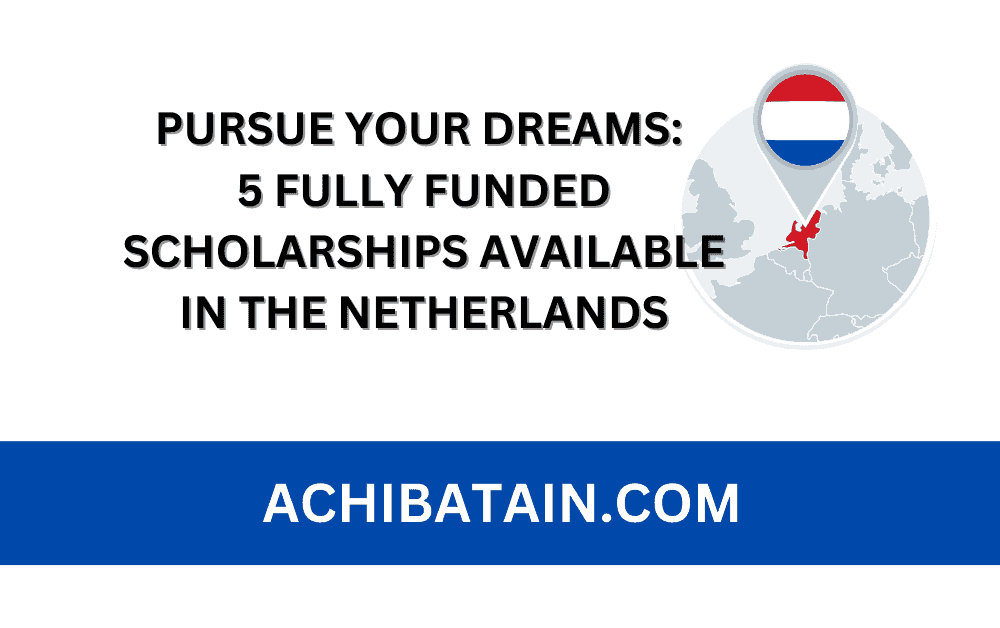
Research Goals & Approach
-
Objective: Uncover shared mechanisms between speech and body motor deficits in Parkinson’s to improve early intervention.
-
Methods: Use sensory-error correction experiments, acoustic signal analysis, and movement tracking.
-
Tools: Coding (Python/MATLAB), interdisciplinary collaboration, and public engagement (e.g., science festivals like Noorderzon).
Eligibility Criteria
-
Academic Background: Master’s in Biomedical Sciences, Neurolinguistics, Movement Sciences, or related fields.
-
Skills:
-
Experience with human-subject research.
-
Data analysis (time-varying signals like speech/motion).
-
Coding proficiency (Python/MATLAB preferred).
-
-
Language: Fluency in English (IELTS/TOEFL waived if prior education was in English).
Benefits
✅ Financial Security: Competitive stipend + travel/research grants.
✅ Training: Career workshops, academic writing support, and interdisciplinary networking.
✅ Facilities: Access to Speech Biosignal Processing Lab and UMCG’s Clinical Movement Sciences resources.
✅ Public Impact: Engage in science communication through festivals and outreach.
How to Apply
-
Prepare Documents:
-
1-page motivation letter.
-
CV + academic transcripts.
-
Two reference contacts.
-
-
Submit Online: Combine files into one PDF and apply via the University Portal by June 16, 2025.
-
Interview: Shortlisted candidates will be notified by June 23, 2025, with interviews scheduled for July 7–11, 2025.
Pro Tip: Contact supervisors Dr. Abur (d.abur@rug.nl) or Dr. Vegter (r.j.k.vegter@umcg.nl) to discuss your research alignment!
Fully Funded PhD in Classical Literature: Explore Posthumanism & Environmental Criticism at University of Groningen
Overview
The University of Groningen, a globally ranked research institution, offers a fully funded 4-year PhD position in Greek and/or Latin Literature. Dive into groundbreaking research linking ancient texts to posthumanism or environmental criticism, reinterpreting classical works through contemporary lenses.
Deadline: June 2, 2025
Key Details
-
Research Focus: Analyze Greek/Latin texts using post humanist theory or environmental criticism—study single authors, genres, or thematic threads.
-
Supervision: Align with Groningen’s Classics department expertise in ancient rhetoric, gender studies, and reception theory.
-
Funding: Full tuition + €2,500–€2,800/month stipend (Dutch university CLA standards).
-
Start Date: Flexible, with enrollment in the Graduate School for Humanities.
Research Opportunities
-
Project Freedom: Design your own thesis—examples include:
-
Ovid’s Metamorphoses through ecological frameworks.
-
Posthuman agency in Homeric epics.
-
Stoic philosophy and non-human ontologies.
-
-
Interdisciplinary Tools: Combine philology with digital humanities, eco-criticism, or gender studies
Check this post also
Exciting PM Laptop Scheme 2025: Top HEC-Approved Universities for Pakistani Students
Eligibility
-
Academic Background: Master’s in Classics, Ancient History, Comparative Literature, or related fields.
-
Skills:
-
Proficiency in ancient Greek/Latin.
-
Strong analytical writing and theoretical engagement.
-
-
Language: English fluency (IELTS 6.5+ or equivalent; waived for prior English-taught degrees).
Why Choose This PhD?
✅ Financial Support: Competitive stipend + conference travel grants.
✅ Academic Network: Collaborate with Groningen’s Humanities research groups and global partners.
✅ Career Development: Workshops on academic publishing, teaching, and public engagement.
✅ Cultural Hub: Work in a UNESCO Heritage city with access to rare manuscripts and archives.
How to Apply
-
Prepare Documents:
-
Research proposal (1,000 words) outlining your project’s goals and methodology.
-
CV + academic transcripts.
-
Two recommendation letters.
-
-
Submit Online: Upload materials via the University Portal by June 2, 2025.
Pro Tip: Highlight how your project aligns with Groningen’s Classics research themes like ancient rhetoric or textual reception!
Fully Funded PhD in Labour Migration & Migrant Career Outcomes at University of Groningen
Overview
The University of Groningen invites applications for a fully funded PhD position analyzing how migrant workers navigate the Dutch labour market. This project tackles urgent questions about cultural adaptation, employment rights, and long-term career stability for migrants—a critical issue as the Netherlands relies on global talent to sustain its economy.
Application Deadline: June 1, 2025
Research Focus
-
Core Question: How do societal and workplace factors shape migrant workers’ career trajectories in the Netherlands?
-
Key Themes:
-
Cultural integration challenges in professional settings.
-
Impact of reduced job security on migrant economic stability.
-
Role of social networks in career advancement.
-
-
Goal: Generate actionable insights for policymakers, employers, and migrant support organizations.
Why This PhD Matters
-
Societal Impact: Address labor shortages while advocating for fair migrant worker conditions.
-
Global Relevance: Insights applicable to EU-wide migration policies and global talent mobility trends.
-
Interdisciplinary Approach: Combines sociology, economics, and public policy frameworks.
Eligibility & Skills
-
Academic Background: Master’s in Sociology, Economics, Migration Studies, or related fields.
-
Preferred Skills:
-
Quantitative/qualitative research methods.
-
Familiarity with Dutch/EU labour laws or migration policies.
-
Fluency in English (Dutch not required but a plus).
-
-
Mindset: Passion for social justice and improving migrant worker rights.
Funding & Benefits
✅ Full Financial Support: €2,500–€2,800/month stipend + tuition waiver.
✅ Career Development: Workshops on policy advocacy, academic publishing, and EU grant writing.
✅ Networking: Collaborate with Dutch NGOs, EU migration agencies, and industry partners.
How to Apply
-
Prepare Documents:
-
CV with academic and professional experience.
-
1–2 page research proposal aligned with the project’s themes.
-
Two recommendation letters.
-
-
Submit Online: Upload materials via the University Portal by June 1, 2025.
-
Interview: Shortlisted candidates notified by mid-June 2025.
Pro Tip: Highlight any prior work with migrant communities or policy analysis in your application!
Fully Funded PhD in Green Steel Development: Machine Learning & Sustainability at University of Groningen
Overview
The University of Groningen, a global leader in sustainability research, offers a 4-year fully funded PhD position to develop machine learning-driven atomic models for next-generation “green steels.” This project aligns with the National Growth Fund’s Groeien met Groen Staal initiative, aiming to revolutionize steel production with eco-friendly digital twin technologies.
Application Deadline: May 31, 2025
Key Details
-
Research Focus: Create machine learning (ML) interatomic potentials for multi-component steel alloys, enabling large-scale simulations of defects, phase diagrams, and microstructures.
-
Impact: Reduce reliance on raw materials and energy by optimizing steel compositions and processing routes.
-
Funding: Full tuition + €2,500–€2,800/month stipend (Dutch university CLA standards).
-
Start Date: Flexible, 2025–2026
Research Goals
-
Objective: Build ML models to predict phase stability and defect kinetics in green steels with density-functional-theory (DFT) accuracy.
-
Applications:
-
Simulate dislocations, grain boundaries, and precipitates.
-
Design digital twins for industrial steel processing.
-
Accelerate development of low-carbon steel alloys.
-
-
Why This Matters
Steel production accounts for ~7% of global CO₂ emissions. By replacing trial-and-error methods with predictive atomic models, this PhD project aims to:
✅ Cut material waste.
✅ Enable energy-efficient manufacturing.
✅ Fast-track sustainable steel innovations
Eligibility Criteria
-
Academic Background: Master’s in Physics, Materials Science, Chemistry, or related computational fields.
-
Skills:
-
Experience with atomistic simulations (DFT, MD, or ML potentials).
-
Proficiency in Python/ML frameworks (PyTorch, TensorFlow).
-
Knowledge of metallurgy or materials engineering (preferred).
-
-
Language: English fluency (no IELTS/TOEFL if prior degree was in English).
How to Apply
-
Prepare Documents:
-
CV + academic transcripts.
-
1-page motivation letter highlighting ML/metallurgy experience.
-
Contact details of 2 references.
-
-
Submit Online: Combine files into one PDF via the University Portal by May 31, 2025.
Pro Tip: Showcase coding projects or prior simulations in your application to stand out!
Apply for a fully funded PhD in Green Steel Development at Groningen! Use machine learning to cut CO₂ emissions. Deadline: May 31, 2025.
Keywords:
Green Steel PhD Netherlands, Machine Learning in Metallurgy, Sustainable Materials Science, Atomic-Scale Modelling, Fully Funded PhD Groningen
Shape the Future of Sustainable Manufacturing!
Leverage AI to redefine steel production—apply now and drive the green industrial revolution. 🌱🔬
Fully Funded PhD in Data-Driven Catalysis at University of Groningen (2025)
Overview
The University of Groningen invites applications for a fully funded PhD position in Data-Driven Modeling of Homogeneous Catalysts. This cutting-edge project merges chemistry, machine learning, and sustainability to design next-generation catalysts for eco-friendly chemical reactions. Perfect for innovators passionate about reducing trial-and-error methods in catalysis research!
Application Deadline: May 29, 2025
Project Focus
-
Goal: Develop predictive models to accelerate stereoselective catalyst discovery.
-
Innovation: Replace traditional trial-and-error approaches with data-driven strategies.
-
Impact: Streamline the creation of catalysts for pharmaceuticals, green chemistry, and industrial processes.
Research Methodology
-
Data Collection: Analyze initial catalytic reactions to identify molecular descriptors (e.g., electronic/structural traits).
-
Model Building: Use statistical tools (Python/R) to create predictive algorithms for catalyst performance.
-
Iterative Testing: Validate models with new catalysts, refine predictions, and close the feedback loop.
Tools You’ll Use:
-
Machine learning frameworks (e.g., Scikit-learn, TensorFlow).
-
Computational chemistry software.
-
Lab experimentation for real-world validation.
Eligibility Criteria
-
Academic Background: Master’s in Chemistry, Chemical Engineering, Data Science, or related fields.
-
Skills:
-
Coding proficiency (Python/R preferred).
-
Experience with catalysis research or statistical modeling.
-
Familiarity with molecular descriptors or cheminformatics (a plus).
-
-
Language: English fluency (IELTS 6.5+/TOEFL 90+ or exemption).
Why Join This Program?
✅ Full Funding: €2,500–€2,800/month stipend + tuition waiver.
✅ Interdisciplinary Training: Collaborate with chemists, data scientists, and industry partners.
✅ Career Growth: Publish in top journals, attend global conferences, and access Groningen’s innovation network.
✅ Sustainability Focus: Contribute to greener chemical synthesis methods.
How to Apply
-
Prepare Documents:
-
CV + academic transcripts.
-
Motivation letter (align with project goals).
-
Contact details for 2 references.
-
-
Submit Online: Apply via the University Portal by May 29, 2025.
Pro Tip: Highlight coding projects or catalysis experience in your application
Why University of Groningen?
-
Top 100 Global Ranking: Renowned for chemistry and AI research.
-
Inclusive Environment: 30% international students, diversity-driven policies.
-
Netherlands Advantage: Bike-friendly city, English-speaking community, EU hub for science.
FAQs
Q: Is Dutch required?
A: No—program is fully in English.
Q: Can international students apply?
A: Yes! The university welcomes global talent.
Q: What after graduation?
A: Opportunities in academia, pharma, or green tech sectors.
Apply for a fully funded PhD in Data-Driven Catalysis at Groningen! Use ML to design sustainable catalysts. Deadline: May 29, 2025.
Keywords:
Fully funded PhD Netherlands, data-driven catalysis, machine learning chemistry, sustainable catalyst design, University of Groningen PhD
Shape the Future of Green Chemistry—Apply Now!
Turn data into eco-friendly solutions with Groningen’s world-class resources. 🧪💻
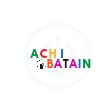
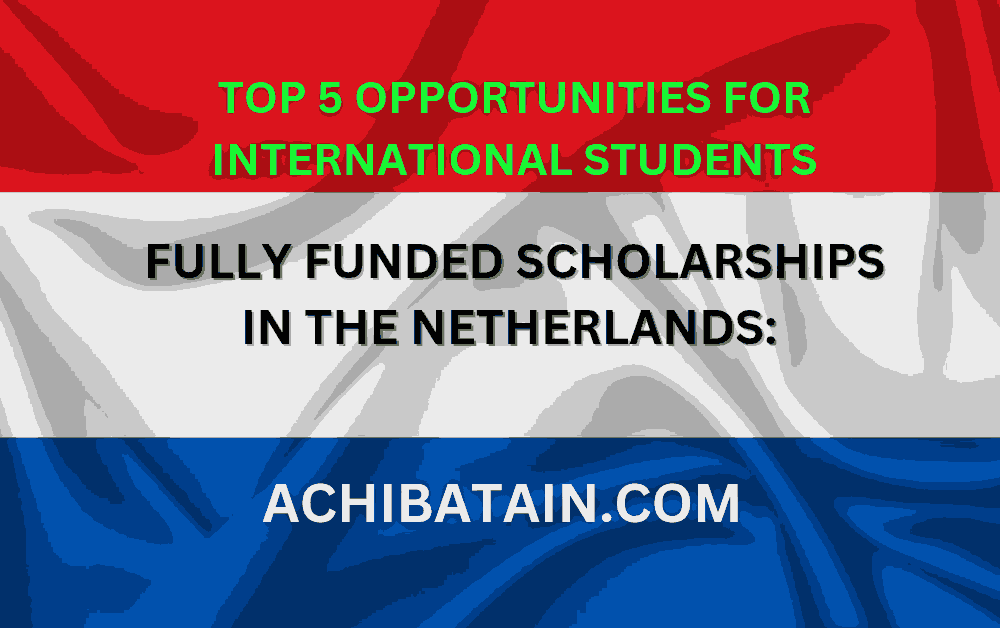
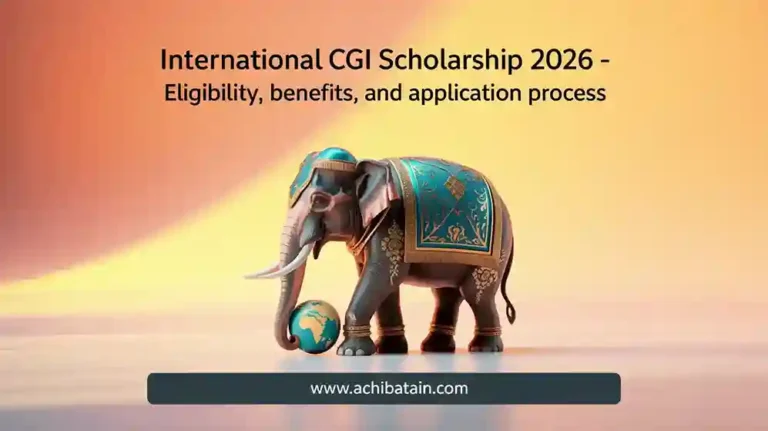
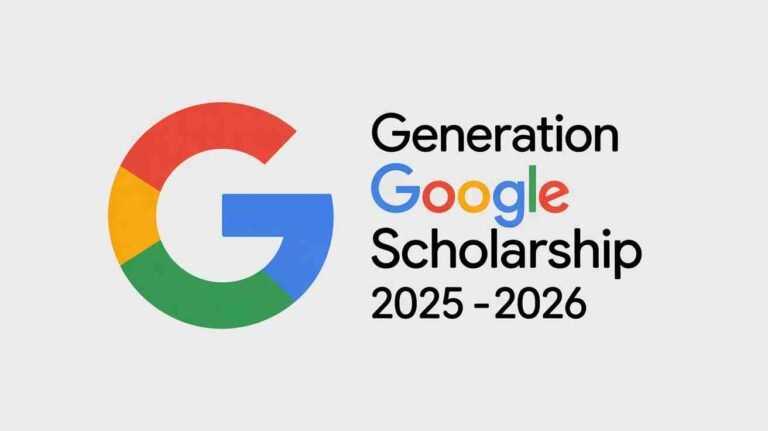

[…] 05 Fully Funded PhD Opportunities at Netherlands (2025–2026) […]